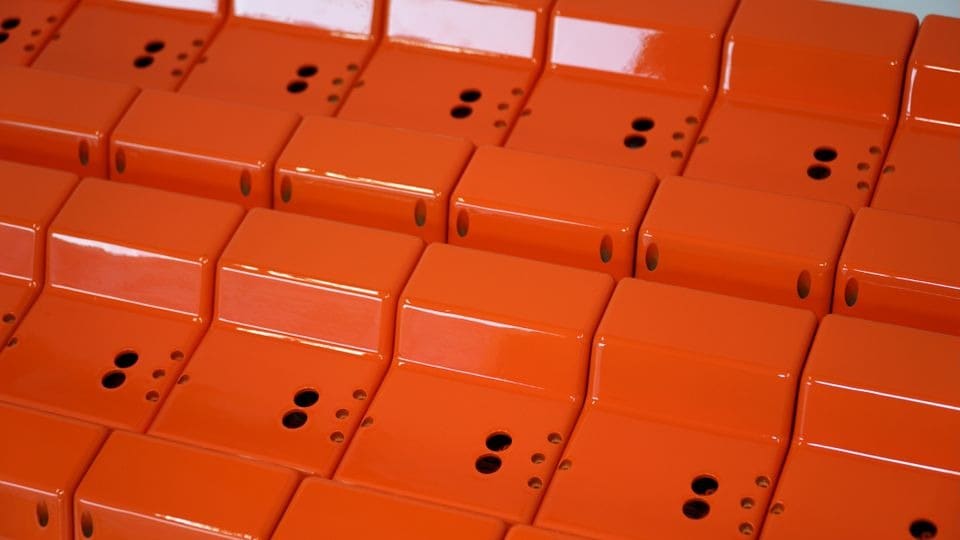5 Ways to Prepare 3D Models for 3D Printing
AUTHOR: Creallo Marketing Team|2025.09.15
Many people are familiar with 3D printers, but the process of preparing 3D models can still feel unfamiliar. Just as a paper printer cannot print without text or image data, a 3D printer requires 3D data (a 3D model) to create any object.

Supported File Formats for 3D Printing
Different 3D printers support different file formats. Some machines are compatible with multiple formats, while others only support a limited range. Among them, STL (.stl) and STEP (.step) files are the most widely used industry standards.
At Creallo, we also support STL and STEP as standard formats, enabling customers to easily produce their designs.
In this article, we introduce five common ways to prepare 3D models for 3D printing services or outsourcing.
1. Using 3D CAD Software
3D CAD software is used to design precise 3D data using points, lines, surfaces, and volumes.
Autodesk Fusion
- A cloud-based platform that integrates CAD, CAM, and CAE
- Strengths: Intuitive interface, end-to-end workflow from design to manufacturing, free license for startups and individuals
- Applications: Product design, mechanical parts, prototypes
Fusion is particularly well-suited for 3D printing, offering a complete workflow from modeling to slicing.
SolidWorks
- A parametric modeling tool regarded as the industry standard in mechanical and industrial design.
- Strengths: Powerful part/assembly/drawing features, strong adoption among SMEs ensures excellent compatibility
- Applications: Mechanical design, industrial equipment, consumer product development
Models created in SolidWorks can be easily converted into STL or STEP, formats supported by virtually all 3D printing and CNC machining providers.
Other CAD Tools
- CATIA: Large-scale, complex design in aerospace and automotive
- PTC Creo: Precision parametric modeling, injection molding analysis
- Siemens NX: Integrated CAD/CAM/CAE platform, global enterprise standard
- TinkerCAD: Free, web-based, ideal for beginners and education
2. Using 3D Graphic Software
While CAD focuses on precision dimensions and tolerances, 3D graphic software emphasizes artistic form and free modeling using polygons and splines. It is less suitable for engineering accuracy but excels at creating complex curves and details, making it popular for figures and character modeling.
Blender
- A powerful, open-source software available for free.
- Strengths: Large user community, extensive plugins
- Applications: Figurines, design visualization, concept modeling
Other Graphic Tools
- Autodesk Maya: Industry standard for animation and game characters
- ZBrush: Best-in-class for sculpting and detailed figure modeling
- Rhinoceros 3D: Specialized in surface modeling, used in jewelry and product design
- Cinema 4D: Strong in motion graphics, advertising, and broadcasting
3. 3D Scanning Real Objects
This method converts a physical object directly into digital data. It is especially useful when no drawings exist, providing an efficient way to obtain a 3D model.
Using 3D Scanners
- Optical scanners (laser/structured light): High precision measurements
- Examples: Artec Eva, EinScan Pro
- Applications: Industrial parts, medical device housings, consumer products
- Photogrammetry: Taking multiple photos with a smartphone or DSLR and reconstructing them in software
- Free tools: Meshroom, Regard3D
- Applications: Artwork, small objects, simple prototypes
Use Cases
- Scanning old machine parts for design archiving
- Creating wearable prototypes for fit testing
- Digitally archiving artwork or sculptures
3D scanners are excellent for capturing precise data, while photogrammetry offers a simpler option for small-scale projects.

4. Downloading 3D Models
You can also use free or paid 3D model sharing platforms to obtain ready-made designs. However, always check copyright, licensing, and commercial use rights before applying them in production.
Popular Platforms
- Thingiverse: The world’s largest free 3D model sharing site, great for prototypes and hobby projects
- BlenderKit: Model and material library integrated with Blender (free and paid)
- Sketchfab: Offers diverse industrial 3D assets, supports AR/VR integration
- TurboSquid: High-quality paid models for visualization and industrial design projects
Use Cases
- Creating mockups for early design review
- Quick test prints for validation
- Reference data in concept development
5. Using Professional 3D Modeling Services
Finally, you can work with expert designers to create 3D models. By providing drawings, sketches, or photos, you can receive production-ready 3D data.
Professional engineers refine models into precise 3D data while considering functionality, durability, assembly, and manufacturing costs. Even companies with in-house modeling skills often rely on experts to ensure higher productivity and competitiveness.
From Your 3D Model to a Finished Product with Creallo
Creallo is an AI-driven online manufacturing service that transforms your 3D models into real products.
- AI-powered instant quoting system delivers results within 1 minute
- No MOQ: Order from just one piece with full 3D printing support
- Broad range of processes: 3D printing, CNC machining, vacuum casting, injection molding
With our Seoul-based in-house factory and global manufacturing network, Creallo delivers your designs quickly and reliably.
???? Start your successful manufacturing journey today with Creallo.
